28 November
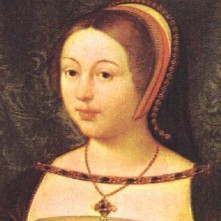
Margaret Tudor
1489 – Birth of Margaret Tudor, Queen of Scotland and consort of James IV, at Westminster Palace. Margaret was the eldest daughter of Henry VII and his wife, Elizabeth of York, and the sister of Henry VII. She spent her childhood at Sheen and at Eltham Palace, but was sent to Scotland at the age of thirteen to marry James IV.
1499 – Execution of Edward Plantagenet, styled Earl of Warwick, on Tower Hill. Edward was the son of George, Duke of Clarence, brother of Edward IV and Richard III, and so was a potential claimant to the throne. He was imprisoned in the Tower of London after Henry VII's accession, and was executed for treason after the pretender Perkin Warbeck had allegedly plotted to free himself and Edward. He was buried at Bisham Abbey.
1557 – Death of Sir Robert Rochester, administrator. He was buried at the Charterhouse at Sheen. Rochester served Mary I as Comptroller of the Royal Household, Privy Councillor, Chancellor of the Duchy of Lancaster, Keeper of the Privy Seal and a member of Parliament.
1565 – Francis Yaxley, member of Parliament and political agent, set sail from Antwerp, and drowned when his ship foundered off the coast of Northumberland. Yaxley worked for Mary, Queen of Scots, was Secretary to her husband, Lord Darnley, and acted as Mary's envoy to the Spanish court. He was returning to Scotland from a mission to ask Philip of Spain to intercede with Elizabeth I to secure the release of Darnley's mother and to stop helping Mary's enemies, when he died. Although Philip declined to talk to Elizabeth on Mary's behalf, he did give Yaxley 20,000 crowns to give Mary. This gold, and Yaxley's body, were seized by the English when they washed up on Holy Island.
1584 – Sir Christopher Hatton, as government spokesman, spoke to Parliament on the dangers of Spain, in a speech lasting 'above two hours'.
1609 – Death of Sir Thomas Smith, Chief Secretary to Robert Devereux, 2nd Earl of Essex, at his home at Parson's Green in Fulham, London. He was buried at Fulham Church.
29 November
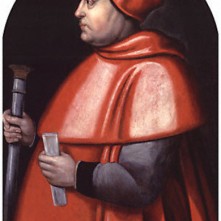
Cardinal Thomas Wolsey
1528 – Birth of Anthony Browne, 1st Viscount Montagu, nobleman and courtier. Montagu was the eldest son of Sir Anthony Browne of Cowdray Park, Sussex, and his first wife, Alice, daughter of Sir John Gage. Montagu's offices in Mary I's reign included Master of the Horse to Philip of Spain, Lord Lieutenant of Sussex and Privy Councillor.
1530 - Cardinal Thomas Wolsey died at Leicester Abbey. He had left his home of Cawood Castle on the 6th November after the Earl of Northumberland, and William Walsh had taken him into custody on the 4th November for high treason. He died at around 8am, and his body was laid out in his pontifical robes for people to see before he was buried at the Abbey, where he still rests today.
1593 – Execution of Richard Hesketh, merchant, at St Albans for treason. Hesketh had incited Ferdinando Stanley, the new 5th Earl of Derby, to lead a rebellion to claim the throne by right of his descent from Mary Tudor, sister of Henry VIII.
30 November
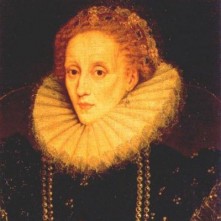
Elizabeth I
1529 - Catherine of Aragon confronted her husband, Henry VIII, about his treatment of her. Click here to find out more about this.
1554 – Both Houses of Parliament presented a petition to Mary I and her husband Philip to intercede with Cardinal Reginald Pole, the papal legate, for absolution for the years of separation from Rome and for reconciliation with Rome. Pole then absolved England and restored it to the Catholic fold.
1554 – Birth of Philip Sidney, the poet, courtier and soldier, at Penshurst Place in Kent. Sidney is known for his famous work “Astrophel and Stella”.
1558 – Death of Elizabeth Howard (née Stafford), Duchess of Norfolk, eldest daughter of Edward Stafford, 3rd Duke of Buckingham, and wife of Thomas Howard, 3rd Duke of Norfolk. Her marriage to Norfolk broke down after he took Elizabeth (Bess) Holland as a mistress in 1527. She gave evidence against her husband when he was accused of treason in 1546, and she bore Mary I's train at her coronation in 1553. Elizabeth was buried in the Howard Chapel at St Mary's Church, Lambeth, now a garden museum.
1577 – Execution of Cuthbert Mayne, Roman Catholic priest, at Launceston in Cornwall after refusing to accept Elizabeth I as supreme head of the church in England. He was hanged, drawn and quartered, and his head was put on display on the gate of Launceston Castle and his quarters sent to Bodmin, Barnstaple, Tregony and Wadebridge as a warning to others.
1601 – Elizabeth delivered her famous Golden Speech to the House of Commons, to address their concerns over England’s economic state of affairs. Click here to read the speech.
1 December
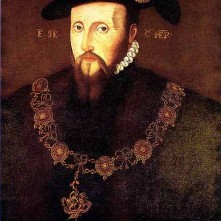
Edward Seymour
1521 - Death of Pope Leo X, or Giovanni di Lorenzo de' Medici, from malaria.
1530 – Death of Margaret of Austria at Mechelen. She was buried alongside her second husband, Philibert II, Duke of Savoy, in their mausoleum at Bourg-en-Bresse.
1539 – Execution of Thomas Marshall, Abbot of Colchester, at Colchester. Marshall was hanged, drawn and quartered for treason for his opposition to the dissolution of the monasteries, his refusal to accept Henry VIII as the Supreme Head of the Church in England and his belief that those carrying out the King's wishes regarding religion and the monasteries were heretics.
1541 - Thomas Culpepper and Francis Dereham convicted of treason. Culpeper and Dereham were arraigned at Guildhall for treason and sentenced to a traitor's death.
1551 - Trial of Edward Seymour, Duke of Somerset, at Westminster for treason – He was tried by his peers at a trial presided over by William Paulet, Marquess of Winchester, and was acquitted of treason, after he skilfully defended himself, but was found guilty of felony because he incited men to riot. Somerset was executed on 22nd January 1552 on Tower Hill.
1581 - Roman Catholic priests Alexander Briant, Ralph Sherwin and Edmund Campion were hanged, drawn and quartered at Tyburn for allegedly plotting against Queen Elizabeth I. All three men were canonised in 1970 by Pope Paul VI.
2 December
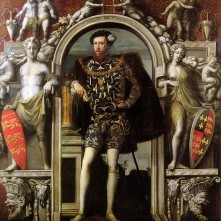
Henry Howard
1546 - Henry Howard, Earl of Surrey, eldest son of Thomas Howard, 3rd Duke of Norfolk, and the renowned Tudor poet, was arrested and charged with improper heraldry after using the arms of his ancestor Edward the Confessor, something which only the King was entitled to do.
1560 – Death of Charles de Marillac, French diplomat and Archbishop of Vienne, at Melun in France. Marillac was a resident ambassador at the court of Henry VIII from 1538 to 1543 and described Henry VIII as having three vices, which he described as “plagues”: “the first is that he is so covetous that all the riches of the world would not satisfy him. Thence proceeds the second, distrust and fear. This King, knowing how many changes he has made, and what tragedies and scandals he has created, would fain keep in favour with everybody, but does not trust a single man, expecting to see them all offended, and he will not cease to dip his hand in blood as long as he doubts his people. The third vice lightness and inconstancy.”
Marillac was banished from the French court in 1560 after opposing the policies put forward by the Guises at the Assembly of Notables at Fontainebleau.
1586 – Parliament met on the 2nd December following their request for Elizabeth I to sanction the execution of Mary, Queen of Scots, and the commissioners' meeting in the Star Chamber where they condemned her to death. A draft proclamation of sentence, written by Elizabeth and William Cecil, Lord Burghley, was published at the Parliament, and this was followed by the drafting of an execution warrant by Sir Francis Walsingham.
1615 – Burial of Edward Wright, mathematician and cartographer, at St Dionis Backchurch, London. He died in late November 1615, while working on his book “A Description of the Admirable Table of Logarithmes”. Wright is known for his work on the mathematics of navigation and his 1599 treatise “Certaine Errors of Navigation”, which explained and developed the Mercator projection.
3 December
1536 - A proclamation was made to the rebels of the Pilgrimage of Grace offering them a pardon. The rebellion dispersed, but was followed by another rebellion, Bigod's Rebellion, in early 1537.
1577 – Death or burial of William Downham, Bishop of Chester and former
Chaplain of Elizabeth I before her accession. He was buried in the choir of Chester Cathedral.
1600 – Death of Roger North, 2nd Baron North, peer and politician in Elizabeth I's reign, at his London home in Charterhouse Square. He was given a funeral service at St Paul's, followed by a burial at Kirtling in Cambridgeshire. North was a friend of Robert Dudley, Earl of Leicester, and served Elizabeth I as Privy Councillor and Treasurer of the Household.
4 December
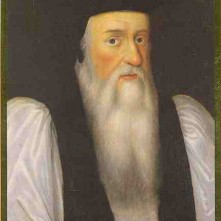
Thomas Cranmer
1506 – Birth of Thomas Darcy, 1st Baron Darcy of Chiche, courtier and administrator. He was the son of Roger Darcy, Esquire of the Body to Henry VII, and his wife, Elizabeth (née Wentworth). Darcy served as a Privy Councillor in Edward VI's reign, and also Captain of the Yeoman of the Guard and Lord Chamberlain of the Household. He was arrested for supporting the Duke of Northumberland's bid to place Lady Jane Grey on the throne, but was pardoned in November 1553.
1514 – Death of Richard Hunne, merchant tailor and leading member of the Lollard community in London. He had been arrested for heresy, and imprisoned in “Lollards' Tower” in St Paul's Cathedral on 14th October after the discovery of a Wycliffite Bible at his home, and his body was discovered hanging in his cell from a silk girdle. It was claimed that he had committed suicide, but a coroner's jury ruled that the hanging had been faked, and that he had been murdered.
1531 – Execution of Rhys ap Gruffudd for treason. He was beheaded after being accused of plotting against the King, although his biographer, R.A. Griffiths, points out that his trial was a “show trial” consisting of contrived testimonies and coached witnesses.
1555 - Papal sentence was passed on Thomas Cranmer in Rome, depriving him of his archbishopric "and of all ecclesiastical dignities". Permission was also given for the secular authorities to decide on his fate.
1557 – Death of Robert King, Abbot of Thame and Bishop of Oxford. He was buried in Oxford Cathedral. King was one of the judges who sat in judgement at the trial of Thomas Cranmer in 1555.
1585 – Death of John Willock, physician and Scottish reformer, at Loughborough in Leicestershire. He was buried at his church, All Saints, in Loughborough. Willock became the Chaplain of Henry Grey, Marquis of Dorset, and father of Lady Jane Grey, in the 1540s.
1595 – Death of William Whitaker, theologian and Master of St. John's College, Cambridge, at the master's lodge after going to bed with a hot “ague”. He was buried at St John's. His works included Liber precum publicarum (1569), Ad rationes decem Edmundi Campiani jesuitæ responsio (1581), responses to Nicholas Sander and Edmund Campion, Disputatio ad sacra scriptura and Adversus Thomae Stapletoni (1594).
1609 – Death of Alexander Hume, Scottish poet and writer. He is known for his 1599 “Hymnes, or Sacred Songs”, which includes his great poem “Of the Day Estivall” which describes a summer's day, from dawn until dusk.

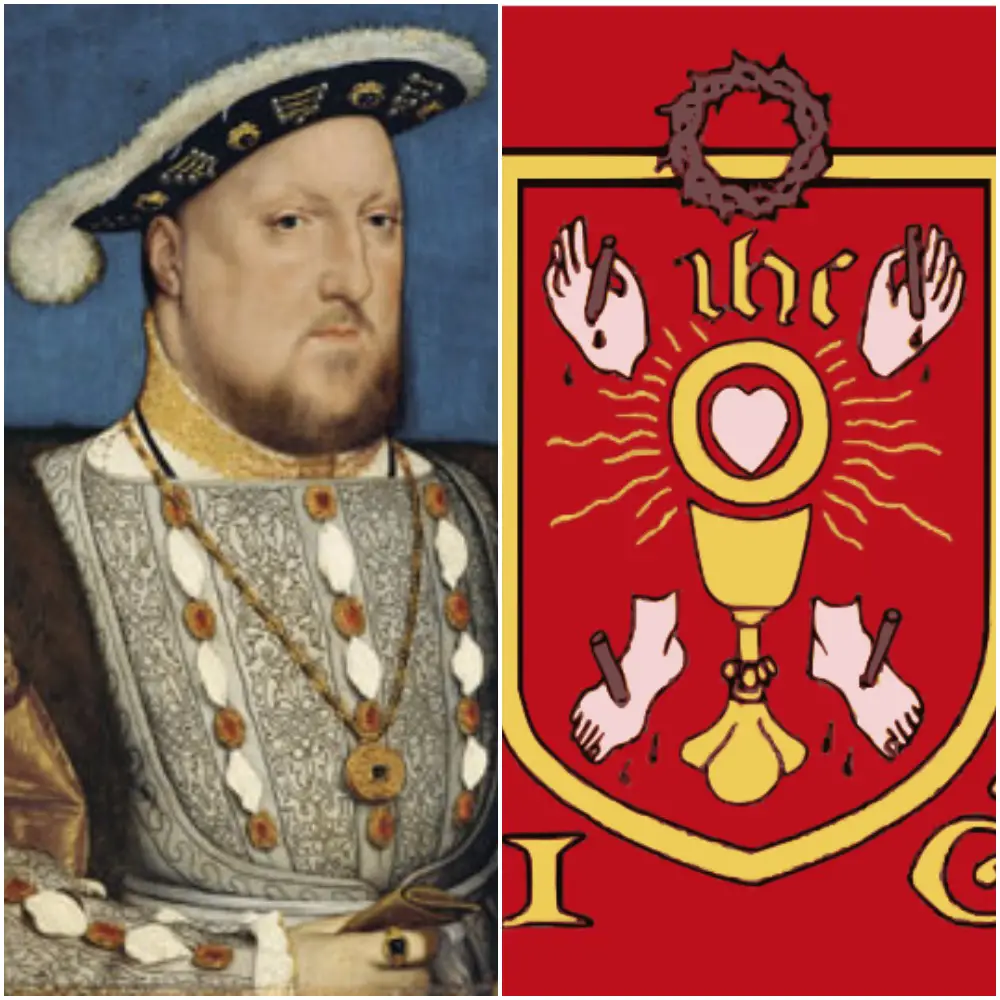
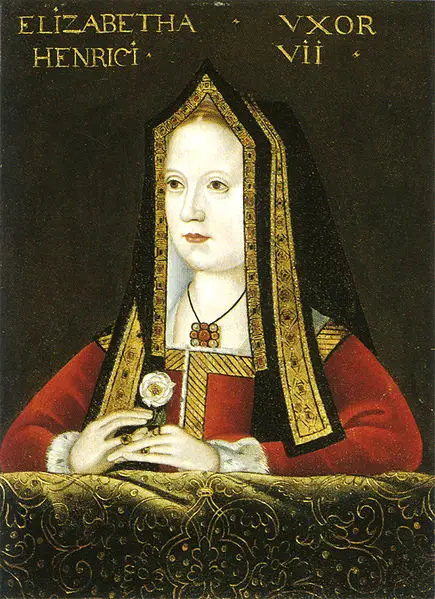
Leave a Reply